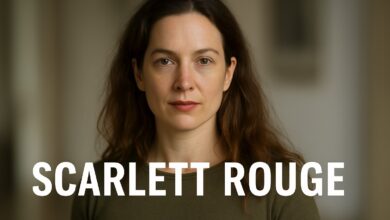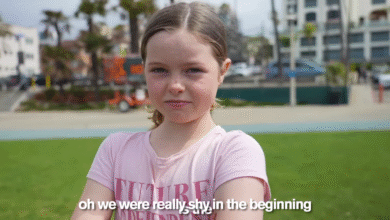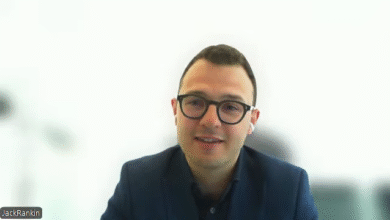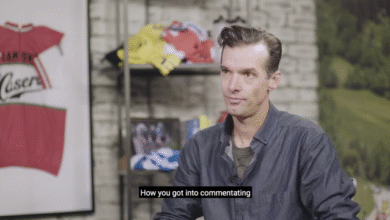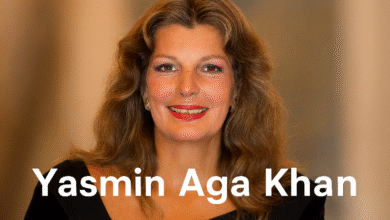Andrew Curran: Bridging Neuroscience and Emotion in Education
How a Leading Paediatric Neurologist Transformed Learning Through the Science of Love and the Brain

Quick Bio
| Field | Details |
|---|---|
| Full Name | Dr Andrew Curran |
| Nationality | British |
| Ethnicity | Caucasian |
| Accent | British (Northern Irish influence) |
| Known For | Neuroscience in education |
| Education | UK-based medical training |
| Clinical Career | 35+ years as Paediatric Neurologist |
| Base Location | Somerset, United Kingdom |
Andrew Curran is a renowned British paediatric neurologist and neuroscience educator whose career spans over three decades. Best known for translating complex neuroscience into practical tools for education and well-being, he has impacted thousands of educators, parents, and learners across the UK and beyond.
Driven by both clinical experience and a passion for emotional intelligence, Curran challenges traditional approaches to learning. His work focuses on how emotions, love, and brain chemistry fundamentally shape human growth and academic success.
Clinical Foundation and Early Career
From Neurology to Education
Dr Curran began his professional journey in the National Health Service (NHS), where he spent over 35 years specialising in paediatric neurology. He worked at leading institutions including Alder Hey Children’s Hospital in Liverpool, addressing neurological disorders such as epilepsy, autism, and ADHD.
His observations in the clinical world revealed how deeply emotions and social conditions influence neurological outcomes. These insights eventually laid the foundation for his broader mission: merging neuroscience with education.
Building a Bridge Between Science and Learning
Rather than confining his knowledge to hospital walls, Curran stepped into schools and learning environments. He partnered with teachers, school leaders, and educational consultants, sharing evidence-based strategies rooted in neuroplasticity and emotional safety. His goal was clear: help educators understand how the brain learns, and why love and connection are not just “nice to have” but essential.
Major Contributions to Neuroscience in Education
The Little Book of Big Stuff About the Brain
One of Curran’s most impactful contributions is his widely-read book, The Little Book of Big Stuff About the Brain. In this concise and powerful guide, he explains how neurotransmitters like dopamine influence motivation and retention, and how emotional states affect memory and learning.
The book remains a key reference for educators who want to better support their students’ emotional and cognitive development through science-backed approaches.
Emotional Literacy and the Role of Love
Curran often repeats the mantra, “Children learn best when they feel loved.” This belief is not just philosophical but neurobiological. He explains how feelings of safety and emotional connection stimulate parts of the brain responsible for higher-order thinking, concentration, and memory.
He integrates emotional literacy into his teachings, helping schools develop cultures where empathy, care, and connection are at the heart of learning.
Live Presentations and Public Engagement
The Little Show of Big Stuff
Beyond the written word and medical practice, Andrew Curran brings neuroscience to life through live performances. His event, The Little Show of Big Stuff About the Brain, merges science with music and storytelling. Audiences experience a multisensory journey into how the brain processes emotion, sound, and memory—making neuroscience accessible and engaging.
These performances not only educate but also aim to heal. Curran believes adults, too, need to feel emotionally safe and connected in order to thrive—and his shows support that transformation.
Training and Workshops
As a senior associate of Independent Thinking, Curran delivers training and keynote speeches to educators, therapists, and mental health professionals. His workshops explore the neurobiology of attachment, ADHD, emotional regulation, and resilience.
Whether addressing a school leadership team or a national conference, Curran’s delivery is heartfelt, evidence-based, and highly practical.
Research and Theoretical Foundations
Brain Plasticity and Reward Pathways
Curran’s teachings are grounded in the latest neuroscience. He regularly discusses the brain’s plasticity—the idea that our neural pathways can adapt, grow, and reorganise throughout life. This contradicts outdated beliefs that brain development is fixed after childhood.
He also examines the brain’s reward systems and how chemicals like dopamine influence behaviour. By understanding these mechanisms, educators and parents can create environments that boost curiosity, motivation, and achievement.
Educational Partnerships
He has collaborated with research departments and universities to investigate emotional development in schools, particularly looking at how emotional literacy improves academic and behavioural outcomes.
His fusion of medical rigour and educational application has made him a go-to expert for those seeking to integrate science into pedagogy.
Current Projects and Evolving Mission
Music, Healing, and The Promise
Now in his late sixties, Curran continues to evolve his message. In recent years, he launched The Promise, a musical and educational journey aimed at adult healing. With a live band and storytelling format, the show explains how music activates multiple brain regions and facilitates emotional release.
Curran’s focus today is not just on children, but also on the adults guiding them. His work aims to help people reconnect with their emotional core, break free from limiting beliefs, and experience joy.
Spreading Hope Through Science
What sets Andrew Curran apart is his ability to use science not to intimidate, but to inspire. He believes knowledge of the brain empowers people to change their lives—whether they’re children in a classroom or adults seeking healing.
As he often says, “Your brain is not broken. You are not stuck.”
Legacy and Impact
Andrew Curran has left a lasting mark on both medicine and education. His legacy is one of integration: blending emotional awareness with neuroscience, combining art with academia, and showing that love is not an optional extra in learning—it is a biological necessity.
Educators, therapists, and parents who have learned from him speak of lightbulb moments, renewed passion, and a better understanding of how to support human development with compassion and science in equal measure.
Frequently Asked Questions (FAQ)
What is Andrew Curran known for?
Andrew Curran is best known for bringing neuroscience into education, especially emphasising emotional connection, attachment, and brain-based learning strategies.
What are his main teachings?
He teaches that emotional safety and love are essential for effective learning, and explains how the brain’s plasticity and reward systems influence behaviour and memory.
Has he written any books?
Yes, his most famous book is The Little Book of Big Stuff About the Brain, which distills complex neuroscience into actionable insights for educators and parents.
Does he still practice medicine?
He continues to work in clinical and legal neurological fields while also focusing on public speaking, workshops, and live educational performances.
Where can I learn from him?
Andrew Curran often speaks at education conferences and public events, and his recorded talks and books are widely available
